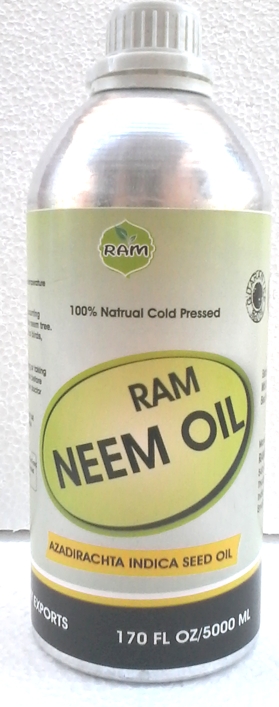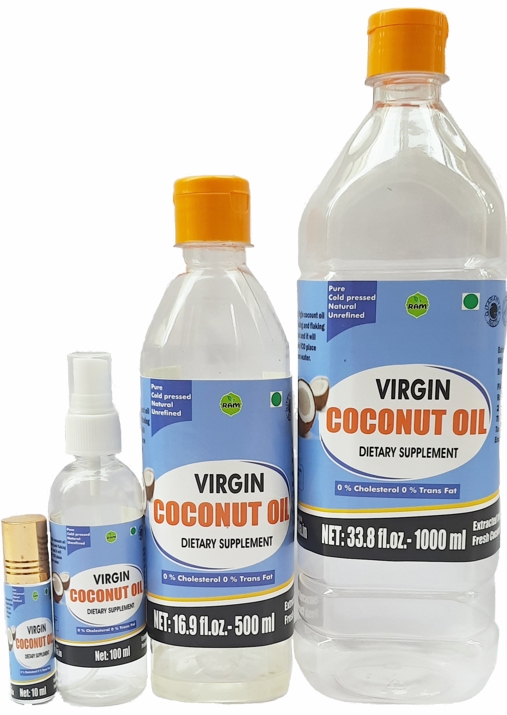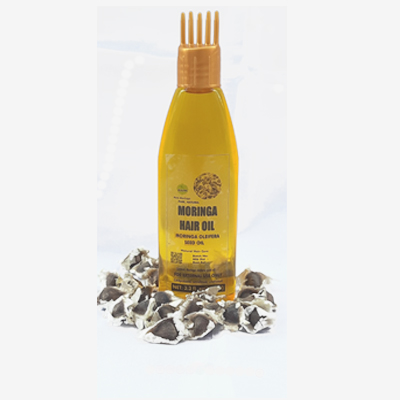NEEM OIL

Neem oil is a vegetable oil pressed from the seeds of the neem (Azadirachta indica), an evergreen tree which is endemic to the Indian subcontinent and has been introduced to many other areas in the tropics. It is the most important of the commercially available products of neem for organic farming and medicines.
Neem oil varies on the following color:
Golden yellow
Yellowish brown
Reddish brown
Dark brown
Greenish brown, or bright red.
Meem oil has a rather strong odor that is said to combine the odours of peanut and garlic. It is composed mainly of triglycerides and contains many triterpenoid compounds, which are responsible for the bitter taste. It is hydrophobic in nature; in order to emulsify it in water for application purposes, it must be formulated with appropriate surfactants.
Neem oil for Organic Farming

Neem oil is a valuable tool in organic farming due to its various agricultural benefits and low environmental impact. Here are some common uses of neem oil in organic farming:
Pest Control:
Neem oil is effective against a wide range of agricultural pests, including aphids, whiteflies, thrips, mites, caterpillars, beetles, and nematodes. It disrupts the growth and development of insects, inhibiting feeding, reproduction, and molting. Neem oil acts as a repellent, antifeedant, and oviposition deterrent, reducing pest damage to crops.
Fungal Control:
Neem oil has antifungal properties that make it effective against various fungal pathogens, such as powdery mildew, downy mildew, anthracnose, rust, and leaf spot diseases. It inhibits the growth and development of fungal spores and mycelium on plant surfaces, preventing disease establishment and spread.
Insect Growth Regulation:
The primary active compound in neem oil, azadirachtin, acts as an insect growth regulator (IGR) by disrupting the hormonal balance and development of insect pests. It interferes with molting, metamorphosis, and reproduction, leading to reduced pest populations and crop damage.
Nematicidal Activity:
Neem oil exhibits nematicidal properties that make it effective against soil-dwelling nematodes, which can cause significant damage to crops. It inhibits the movement, feeding, and reproduction of nematodes, reducing their population and mitigating root damage and yield loss.
Biological Control:
Neem oil acts as a biopesticide and biofungicide, providing a natural alternative to synthetic chemical pesticides and fungicides in organic farming systems. It is compatible with beneficial insects, such as pollinators and natural enemies of pests, minimizing negative impacts on non-target organisms and promoting ecological balance.
Soil Amendment:
Neem cake, a byproduct of neem oil extraction, is used as an organic fertilizer and soil conditioner in organic farming. It enriches the soil with nutrients like nitrogen, phosphorus, potassium, and micronutrients, improving soil fertility and structure. Neem cake also contains natural pesticides and nematicides, contributing to pest and disease management in the soil.
Residue Management:
Neem oil residues break down rapidly in the environment, minimizing the accumulation of harmful chemical residues in soil, water, and food products. This reduces environmental pollution and ensures food safety in organic farming practices.
Integrated Pest Management (IPM):
Neem oil is an integral component of integrated pest management (IPM) programs in organic farming, which combine various cultural, biological, and mechanical control measures to manage pests sustainably. It is used in conjunction with other pest control tactics to enhance efficacy and reduce reliance on synthetic chemicals.
Composition of neem oil
Azadirachtin
Azadirachtin is the most well known and studied triterpenoid in neem oil. The azadirachtin content of neem oil varies from 300ppm to over 2500 ppm depending on the extraction technology and quality of the neem seeds crushed.
Azadirachtin
Nimbin is another triterpenoid which has been credited with some of neem oil's properties as an antiseptic, antifungal, antipyretic and antihistamine. Neem oil also contains several sterols, including (campesterol, beta-sitosterol, stigmasterol).
Other Liminoids:
Neem oil contains several other limonoid compounds, such as salannin, nimbin, nimbidin, and meliantriol, which contribute to its insecticidal, antifeedant, and antifungal properties.
Triglycerides and Fatty Acids:
Neem oil contains triglycerides and fatty acids, including oleic acid, linoleic acid, and stearic acid, which serve as carriers for bioactive compounds and provide moisturizing and emollient properties for skin care applications.
Sterols:
Neem oil contains sterols like beta-sitosterol, campesterol, and stigmasterol, which have anti-inflammatory and antioxidant properties and may contribute to its therapeutic effects on skin and hair.
Triterpenoids:
Neem oil contains triterpenoid compounds like nimbidin and nimbinin, which have been studied for their antifungal, antibacterial, and anti-inflammatory activities.
Volatile Compounds:
Neem oil contains volatile compounds, including sulfur compounds and terpenoids, which contribute to its characteristic odor and may have insect-repellent properties.
Polyphenols:
Neem oil contains polyphenolic compounds with antioxidant properties, which help protect against oxidative stress and free radical damage.
Vitamin E:
Neem oil contains vitamin E (tocopherol), which provides additional antioxidant benefits and helps nourish and protect the skin.
NEEM OIL USES
Neem oil for human use
Skin Care:
Neem oil is renowned for its skin-nourishing properties. It is used to treat various skin conditions such as acne, eczema, psoriasis, and fungal infections. Neem oil has antimicrobial, anti-inflammatory, and moisturizing properties that help soothe and heal the skin.
Hair Care:
Neem oil is used in hair care products like shampoos, conditioners, and hair oils due to its ability to promote scalp health and hair growth. It helps alleviate dandruff, scalp irritation, and hair loss, while also conditioning and strengthening the hair strands.
Dental Care:
Neem oil is included in some toothpaste formulations and mouthwashes for its antibacterial properties. It helps combat oral bacteria, reduce plaque formation, and maintain oral hygiene. Neem oil is also used for oil pulling, an ancient practice believed to promote oral health.
Wound Healing:
Neem oil has antiseptic and wound-healing properties that make it beneficial for treating cuts, wounds, and minor skin injuries. It helps prevent infection, reduce inflammation, and promote tissue regeneration, speeding up the healing process.
Insect Repellent:
Neem oil can be used as a natural insect repellent to deter mosquitoes, fleas, ticks, and other biting insects. It is often diluted and applied to the skin or added to homemade insect repellent formulations for protection against insect bites.
Anti-inflammatory:
Neem oil contains compounds with anti-inflammatory properties that can help alleviate pain and swelling associated with inflammatory conditions like arthritis, rheumatism, and muscle soreness. It can be applied topically as a massage oil or added to bath water for relief.
Immune Support:
Some traditional systems of medicine use neem oil internally for its immune-stimulating properties. It is believed to support the body's natural defenses against infections and diseases when consumed in small amounts.
Scabies and Lice Treatment:
Neem oil is sometimes used to treat infestations of scabies and head lice due to its insecticidal properties. It can be applied topically to affected areas or added to shampoos for lice treatment.
Ayuvedic medicine
Traditional Ayurvedic uses of neem include the treatment of acne, fever, leprosy, malaria, ophthalmia and tuberculosis. Various folk remedies for neem include use as an anthelmintic, antifeedant, antiseptic, diuretic, emmenagogue, contraceptive, febrifuge, parasiticide, pediculocide and insecticide.
The most frequently reported indications in ancient Ayurvedic writings are skin diseases, inflammations and fevers, and more recently rheumatic disorders, insect repellent and insecticide effects.
Biopesticide
Formulations made of neem oil also find wide usage as a biopesticide for organic farming, as it repels a wide variety of pests including the mealy bug, beet armyworm, aphids, the cabbage worm, thrips, whiteflies, mites, fungus gnats, beetles, moth larvae, mushroom flies, leafminers, caterpillars, locust, nematodes and the Japanese beetle.
Neem Oil For Pets

Skin and Coat Care:
Neem oil can help soothe and nourish your pet's skin and coat. It is commonly used to alleviate itching, irritation, dryness, and other skin conditions in dogs, cats, and horses. Diluted neem oil can be applied topically to affected areas or added to pet shampoos for bathing.
Flea and Tick Repellent:
Neem oil is effective in repelling fleas, ticks, mites, and other external parasites that commonly affect pets. Diluted neem oil can be sprayed onto your pet's coat or applied to their bedding to help prevent infestations. However, it's essential to use the appropriate dilution and avoid applying concentrated neem oil directly to your pet's skin, as it may cause irritation.
Ear Cleaning:
Neem oil can be diluted with a carrier oil, such as coconut oil or olive oil, and used to clean your pet's ears. It helps remove dirt, debris, and excess wax while also providing antibacterial and antifungal properties to help maintain ear health. Use a few drops of diluted neem oil on a cotton ball or pad to gently clean the inside of your pet's ears.
Wound Healing:
Neem oil's antiseptic and wound-healing properties make it beneficial for treating minor cuts, scrapes, and abrasions in pets. Diluted neem oil can be applied topically to clean wounds to help prevent infection, reduce inflammation, and promote healing. However, always consult with your veterinarian before using neem oil on open wounds or broken skin.
Oral Health:
Some pet dental care products contain neem oil for its antibacterial properties, which can help maintain oral hygiene and prevent gum disease in dogs and cats. Neem oil can be added to homemade toothpaste or mouthwash formulations for pets, but be sure to use it in small amounts and avoid ingestion.
General Wellness:
Neem oil may be used as a dietary supplement for pets in small amounts to support their overall health and immunity. However, it's crucial to consult with your veterinarian before administering neem oil internally to your pet, as dosage and safety considerations may vary depending on the species, size, and health status of the animal.
Neem oil is not used for any cooking purposes.
Neem oil is not known to be harmful to mammals, birds, earthworms or some beneficial insects such as butterflies, honeybees and ladybirds (ladybugs in US English) if it is not concentrated directly into their area of habitat or on their food source. It can be used as a household pesticide for ant, bedbug, cockroach, housefly, sand fly, snail, termite and mosquitoes both as repellent and larvicide.Neem oil also controls black spot, powdery mildew, anthracnose and rust fungi.
Neem seed oil has also been found to prevent implantation and may even have an abortifacient effect similar to pennyroyal, juniper berries, wild ginger, myrrh and angelica. The effects were seen as many as ten days after fertilization in rats though it was most effective at no more than three days. (Sinha, et al., 1984)[not specific enough to verify]; (Lal et al., 1985)[not specific enough to verify]. In a study on rats, neem oil was given orally eight to ten days after implantation of the fetus on the uterine wall. In all cases, by day 15, the embryos were all completely resorbed by the body. The animals regained fertility on the next cycle showing no physical problems. Detailed study of the rats revealed increased levels of gamma interferon in the uterus.
The neem oil enhanced the local immune response in the uterus.(Mukherjee, 1996)[4][not specific enough to verify] Post coital use of neem oil as birth control does not appear to work by hormonal changes but produces changes in the organs that make pregnancy no longer viable (Tewari, 1989)[not specific enough to verify] (Bardham, 1991)[not specific enough to verify].
Neem seed oil has also been used as a renewable source for the preparation of polymeric coatings. It has been converted into various polymeric resins, including polyesteramides and polyetheramides. These resins may be utilized further for preparation of polyurethane coatings.
Similar products



